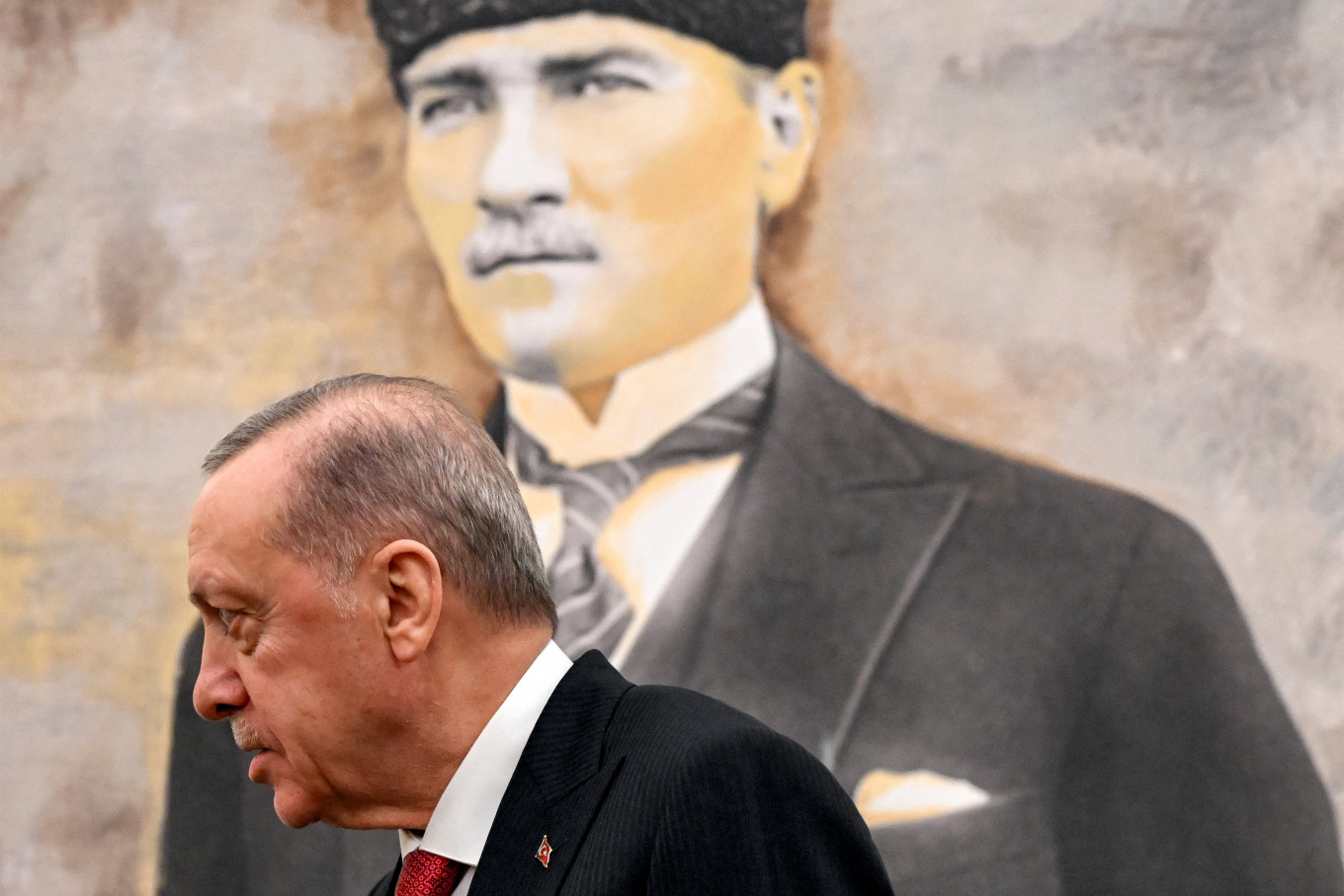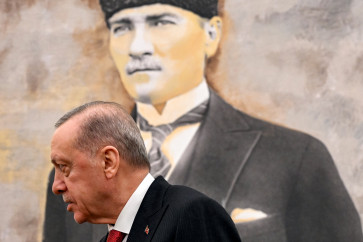Popular Reads
Top Results
Can't find what you're looking for?
View all search resultsPopular Reads
Top Results
Can't find what you're looking for?
View all search resultsHow international crises help authoritarians
Changes to the international order have reinforced authoritarian regimes.
Change text size
Gift Premium Articles
to Anyone
U
nited States President Donald Trump’s ferocious assault on US institutions over the last nine months is a particularly morbid symptom of the global decline of democracy. But Trump has merely capitalized on a process that was well underway before his return to the White House.
Several factors have contributed to this worldwide retreat. Authoritarian regimes have consolidated power by sharpening their methods of control, from electoral engineering and digital surveillance to legal and institutional manipulation. Moreover, autocrats often provide each other with political and economic support, as demonstrated by the close ties between Chinese President Xi Jinping and Russian President Vladimir Putin. And the shortcomings of several high-profile democracies, not least the US, have arguably made the model less attractive.
But what is often overlooked is how profound changes to the international order have reinforced authoritarian regimes. In today’s increasingly multipolar world, the rise of regional geopolitical conflicts has been a boon for competitive authoritarian systems, which hold elections but tilt the political playing field in their favor.
A prime example is Russia’s war of aggression in Ukraine, which helped boost the domestic legitimacy of Hungarian Prime Minister Viktor Orbán and Turkish President Recep Tayyip Erdoğan in the run-up to pivotal elections.
Russia’s invasion of Ukraine came just over a month before Hungary’s parliamentary election on April 3, 2022. Orbán hammered home the message that only he could keep Hungary safe. Unlike the opposition, whom Orbán portrayed as reckless warmongers for wanting to support Ukraine’s defense, he promised to shield Hungarians from war. Bombarded by pro-government media, many Hungarians came to see Orbán as the guarantor of peace, even opposition supporters feared that a change of government might drag Hungary into the conflict.
Orbán also leveraged the war in Brussels, threatening to block European Union efforts to help Ukraine unless the European Commission released frozen funds for Hungary. At home, he framed this as a triumph over European elites eager to spend “Hungarian money on Ukrainians.” Pro-government media echoed the Kremlin narrative, blaming EU sanctions, not Russia’s invasion, for Hungary’s economic troubles, and framed Orbán’s long-standing ties with Putin as proof of his ability to secure cheap energy, whereas electing the opposition could mean shortages. Orbán’s Fidesz-led coalition won two-thirds of the seats, retaining its parliamentary supermajority and consolidating his grip on power.
Similar dynamics played out in Turkey. In the run-up to the presidential election in May 2023, Erdoğan emphasized his personal diplomacy in the Ukraine war, highlighting the Black Sea grain deal. Facing off against a single challenger supported by a broad opposition alliance, Erdoğan also cast himself as the only leader capable of keeping Turkey out of the conflict while also elevating its global influence. Pro-government media warned that an opposition victory would mean full alignment with the West’s war effort. The race was tight and required a runoff, but Erdoğan prevailed.



















